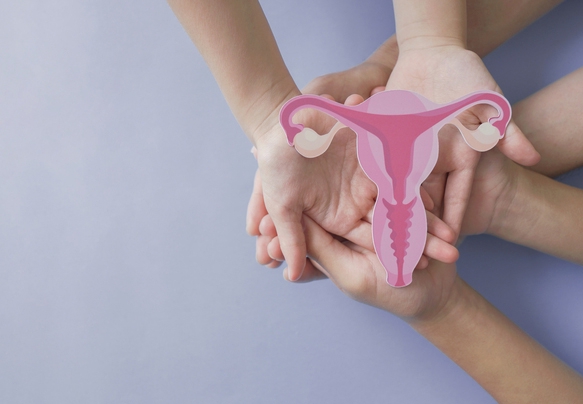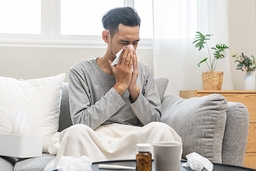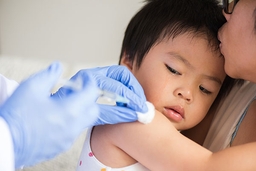HPV Vaccination: Fulfill Your Satisfaction Safely

The HPV virus causes 90% of cervical malignancies. Early HPV vaccination protects women from cervical cancer.
Cervical cancer is a female-specific malignancy. It is a severe public health issue in Indonesia, with a high incidence rate.
According to the Ministry of Health's data, 50,000 new cases are diagnosed each year. It has even surpassed breast cancer as the second-leading cause of mortality in women.
According to data from Cipto Mangunkusumo General Hospital, 94% of cervical cancer patients died within two years after diagnosis. This is because patients frequently complain of advanced symptoms.
Cervical cancer is caused by a number of factors. Some of them are that the patient has had multiple sexual partners and has been infected with sexually transmitted illnesses.
HPV viruses

There are hundreds of different varieties of the HPV virus (human papillomavirus), and roughly 40 of them are found in the human genital area. Some are low-risk, while others are high-risk. In addition to causing cervical cancer, the HPV virus has a significant chance of causing other malignancies, such as vaginal and vulvar cancer.
This virus causes cancer of the penis, anus, and oropharynx (carcinoma of the back of the throat, including the base of the tongue and tonsils) in men. The low-risk HPV virus causes genital warts, cutaneous warts, verrucas, and vocal cord warts.
HPV infection spreads through the skin, including the fingers, hands, mouth, and genitals. The infection can be spread by any action, including touching.
Most HPV infections are asymptomatic. The virus is usually eliminated by the body on its own within 1-2 years. Certain HPV infections, on the other hand, might remain for a long period and induce aberrant cell alterations, eventually leading to cancer. However, in some cases, this can be avoided with vaccination.
When is the HPV vaccine administered?

Since its initial recommendation in 2006, the HPV vaccine has been shown to reduce the risk of cervical cancer and genital warts by 88% in adolescent girls and 81% in young adult women.
There are three kinds of HPV vaccinations. First, the Cervarix HPV vaccine, which offers protection against HPV strains 16 and 18, is given to women between the ages of 9 and 25.
The second is the Gardasil HPV vaccination, which gives protection against HPV strains 6, 11, 16, and 18. It is beneficial in the prevention of cervical, vulvar, vaginal, and anal cancers. This vaccine can also help prevent genital warts. Given to females aged 9 to 26 years.
Third, there is a 9-valent HPV vaccine (Gardasil 9), which protects against HPV types 6, 11, 16, 18, 31, 33, 45, 52, and 58. Women and men from 9 to 45 years old are eligible.
The HPV vaccine is administered in two to three doses. Girls who get vaccinated for the first time before the age of 15 receive two doses. The minimum time between doses is 6 months. Meanwhile, the vaccination is administered in three doses to people aged 15 to 26.
Vaccinations are administered 1-2 months apart between the first and second doses, with the third dosage administered 6 months after the first.
If the 26-year-old group wishes to be vaccinated, they must obtain a doctor's recommendation. This is because they have most likely been exposed to the HPV virus through sexual activity.
Since April 2022, the government, in this case, the Ministry of Health, has established the HPV vaccine as a mandatory immunization for girls in grades 5 and 6. The HPV vaccine offers long-term protection for at least 12 years.
And even after having the HPV vaccine, a woman should still have frequent cervical screenings. Women between the ages of 25 and 70 are required to perform it every five years, or two years following the pap smear.
Who can't get the HPV vaccine?
People with specific allergies, in a nutshell. Inform your doctor if you have one of these conditions.
- Have had a potentially fatal adverse reaction to any of the HPV vaccine's ingredients or a previous dosage of the HPV vaccination.
- Have a yeast allergy (which is found in Gardasil and Gardasil 9).
- Pregnant. You can't get immunized before giving birth.
- Suffering from severe pain. The HPV vaccine is safe for children who have a mild illness, such as a fever, runny nose, or cough.
What is the procedure?
The doctor will give 0.5 ml of the HPV vaccine intramuscularly as a shot. So get your upper arm or upper thigh ready.
The doctor will conduct these steps:
- Use an alcohol swab to clean the injection site.
- Intramuscularly inject the HPV vaccine through the skin's surface.
- Put alcohol-soaked gauze against the injection site to avoid bleeding.
Are there any side effects?
Vaccines, like any medicine, can have side effects, but not everyone experiences them. One possible side effect is soreness at the injection site.
Here are some minor side effects of the HPV vaccine:
- redness or swelling in the injection site, occasionally accompanied by pain
- fever
- dizziness or fainting (fainting after any vaccine is more likely in teens)
- headache or tiredness
- nausea
- muscular or joint discomfort
After immunization, a severe allergic reaction (anaphylaxis) characterized by shortness of breath may occur. Individuals who are severely allergic to any of the vaccine components should not receive the HPV vaccination.
Cervical cancer can be prevented in addition to vaccination by practicing safe sex, using condoms, being a faithful partner, avoiding smoking, and having frequent pap tests to monitor cervical health.



